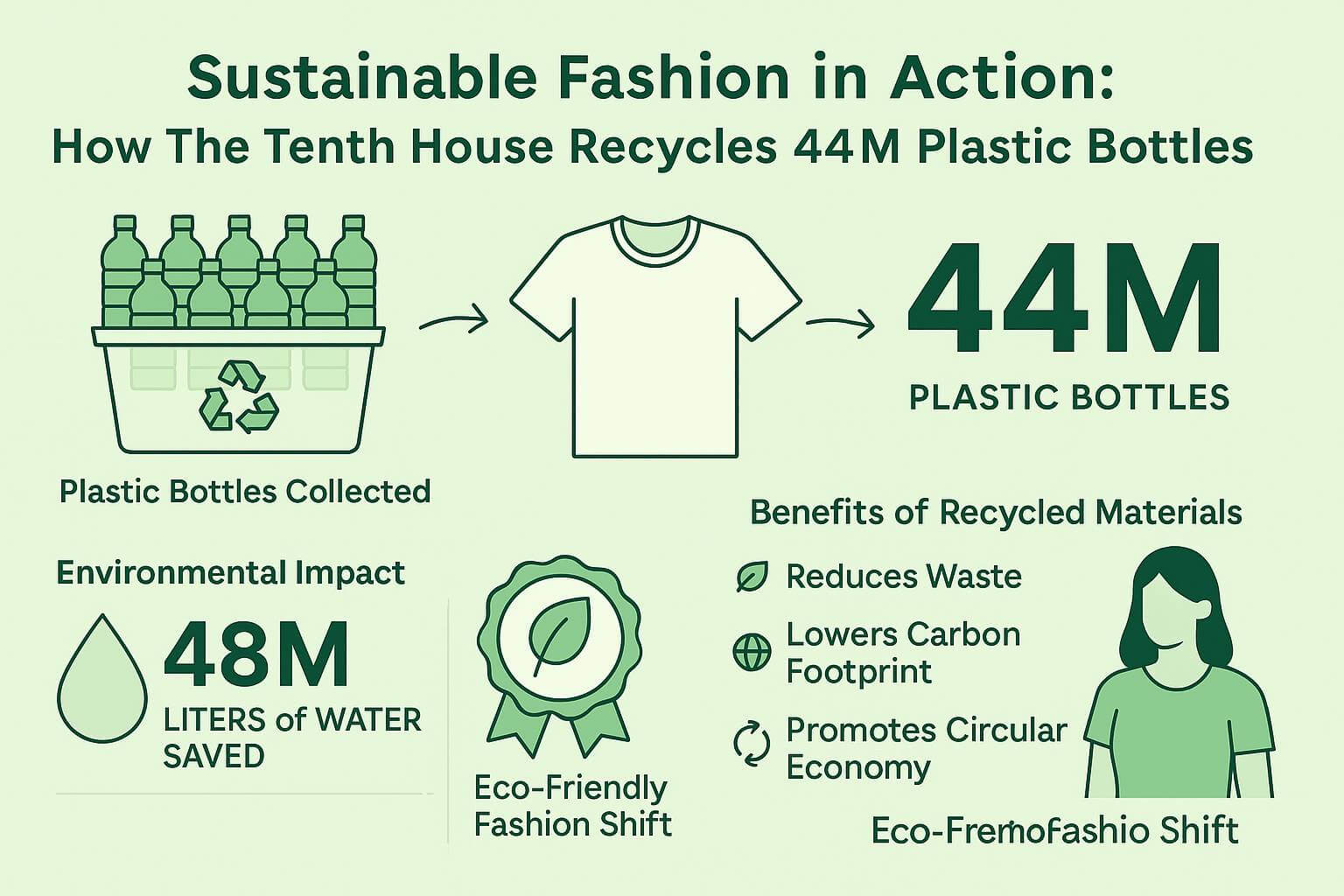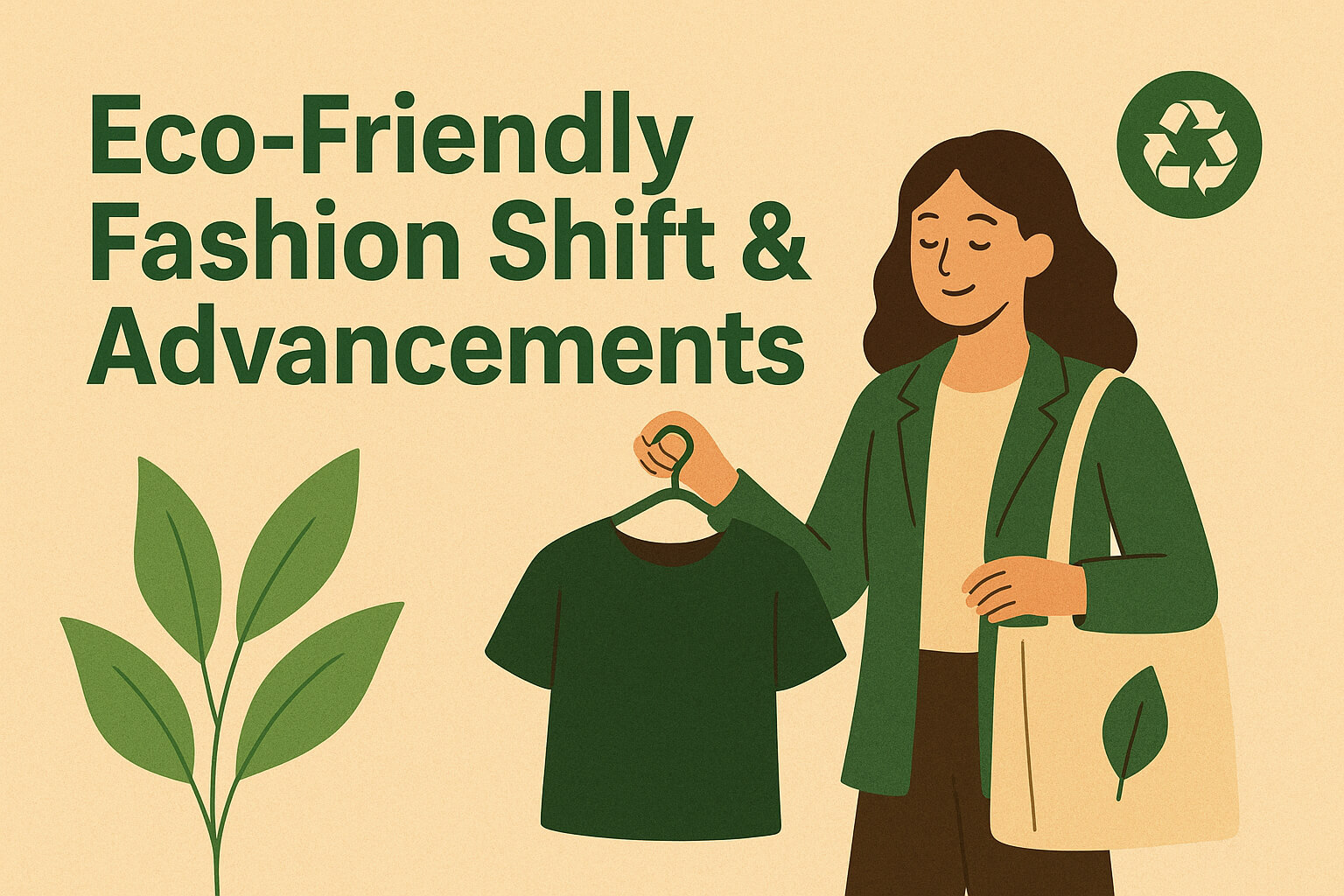- Since 2023, we have recycled 44 million plastic bottles.
- Saved 48 million litres of water in the past year
- Since 2023, we have recycled 44 million plastic bottles.
- Saved 48 million litres of water in the past year

A global shift has been observed in the fashion domain. Every fashion-forward individual is inclined to make some sustainable fashion choices. Today, plastics are getting reused in apparel, showcasing how truly this field is expanding. Today, this trend is being adopted by major fashion houses and those involved with sustainable t-shirt manufacturing in India.

One of the most important sustainable fashion initiatives also involves recycling plastic bottles into apparel. It has repurposed more than 44 million plastic bottles into textiles, saving almost 48 million litres of water. Such a move shows that the fashion industry can reduce its use of virgin materials and achieve some extent of circularity.
One of the countries experiencing the trends in sustainable t-shirt manufacturing is India, which has demonstrated its ability to take the initiative in preserving the environment on a massive scale, even in markets with high demand rates.
Water pollution within the ocean and storage facilities situated throughout the land is another issue that plastic waste-to-fabric can help address, as they will eventually become full. The practice suggests that a solution can be found that provides an environmentally less harmful fashion while meeting consumer demand for high-quality products.
Sustainability, achieved through recycling polyester and other environmentally friendly materials, is not the only advantage. Post-consumer plastic recycled polyester uses less energy and water to produce relative to virgin polyester.
This minimises greenhouse gas emissions. The other recycled fabric benefits are its durability and versatility, which help provide a variety of clothing styles and functions. Another benefit is the attractiveness to consumers. Consumers are increasingly drawn to eco-friendly clothing brands that openly disclose their sustainability efforts.
Presenting the functionality of plastic bottles to apparel processes will help foster trust and encourage more customers to adopt sustainable options. This is because these advantages are responsible for both the environment and business cases.
The acquisition of well-regarded environmental certification fosters the adoption of sustainable practices. Certifications such as Oeko-Tex and ISO standards ensure the safety of fabrics for consumers and guarantee the environmental soundness of the manufacturing process. These certificates highlight the recycled fabric benefits and the environmentally friendly procedures employed.
Consumers demand certifications from brands involved with sustainable t-shirt manufacturing in India. They support the message that clothes are not only stylish but also manufactured responsibly.
For brands that are still looking to move towards a more sustainable level of practices, one can make a significant impact by starting with small steps. You can use recycled materials or collaborate with suppliers who focus on converting plastic bottles into clothing. The creation of partnerships with certified manufacturers raises a more transparent supply chain.
You must also bring the consumers on a tour of your sustainability. These efforts position your brand as a credible source among new eco-friendly clothing brands.
The market itself is shifting towards environmentally friendly products as an increasing number of people become aware of climate change, waste management, and related issues. There is evidence that customers will be willing to purchase high-quality clothes made using environmentally friendly t-shirt production techniques that India has already adopted.
Sustainability is no longer a too-narrow fashion but a popular demand. Consumers with such values tend to exhibit greater loyalty and achieve long-term growth with brands that align with their values. Providing sustainable resources and practices is a win-win for the world and the company.
The fashion industry can no longer afford to ignore sustainability, as consumers and other industry giants are increasingly demanding it. The green initiative is building a new fashion space, which is largely adopted by leading brands globally, transforming the outlook of fashion ahead.

Choosing the right corporate uniform supplier is key to brand identity, comfort, and professionalism. Explore tips, trends, and industry-specific insights.

Choosing the right corporate uniform supplier is key to brand identity, comfort, and professionalism. Explore tips, trends, and industry-specific insights.

Choosing the right corporate uniform supplier is key to brand identity, comfort, and professionalism. Explore tips, trends, and industry-specific insights.